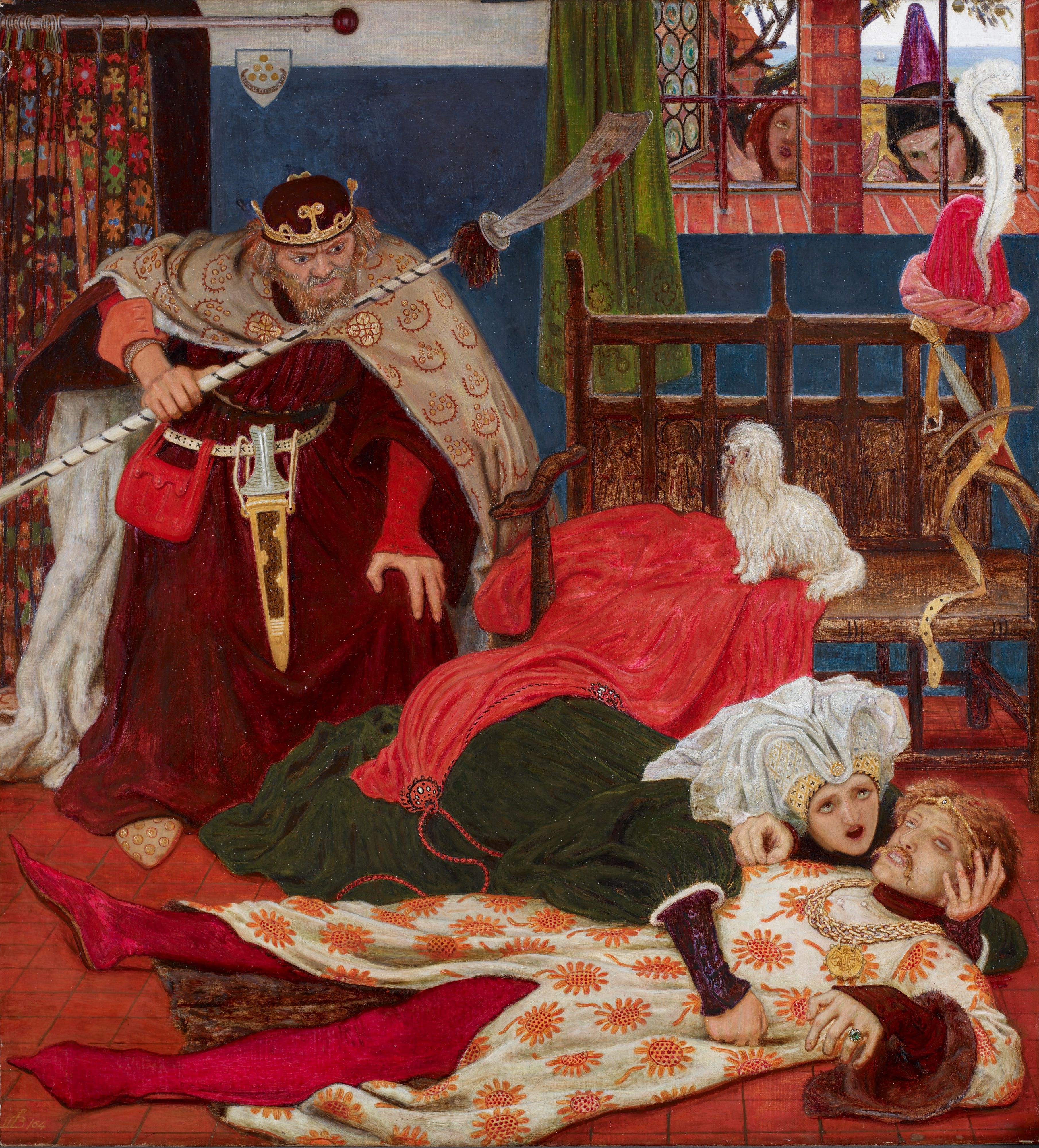
Death denial happens when individuals refuse to acknowledge the reality of their own mortality or the inevitability of death. In other words, they’re scared to death of death.
Recently I listened to The Atlantic podcast about Peter Thiel, whose death denial was on full display. He sounded like Logan Roy, the powerful head of the Roy family in the HBO drama series Succession. If you watched the last season, you know that Logan Roy also exhibited fear and denial around death.
Consider for a moment all the tyrannical men in positions of power who share that fear. In real life or fiction, these characters are everywhere.
Fear of Death Among The Powerful
Denying what we fear is a universal human experience, and it can affect individuals regardless of their social or political standing. For example, comedy podcasts like WTF with Marc Maron and movies like Barbie struggle with death denial. They’re working through it with humor and art.
However, when right-wing men in positions of power fear death, especially authoritarians, it makes life worse for all of us. This is especially true if they subscribe to extremist religious views or align themselves with those who do.
Let’s take a look at why fascist-leaning men are particularly susceptible to death denial.
Loss of Control
Powerful individuals often have a strong desire for control and influence. Death represents the ultimate loss of control, as it is a natural and inevitable part of the human experience that cannot be manipulated or avoided.
Fear of Retribution
Tyrannical leaders who have engaged in harmful or oppressive actions may fear facing consequences in the afterlife or the judgment of history. The prospect of facing judgment or punishment for their actions can contribute to a fear of death.
Loss of Power and Status
Death means the end of one’s earthly power and influence. For those who derive a significant part of their identity and self-worth from their positions of authority, the idea of losing that power can be frightening.
Insecurity and Lack of Legacy
Some powerful individuals may fear being forgotten or having their legacies tarnished after death. They may seek to leave a lasting impact on history or be remembered in a positive light, and the uncertainty of how they will be remembered can contribute to their fear of death.
Isolation and Lack of Genuine Connection
Despite their outward influence, powerful and tyrannical individuals may experience isolation and a lack of genuine connections with others. The prospect of facing death alone, without the support or loyalty of those around them, can be a source of fear.
It’s important to note that these reasons are not exclusive to powerful or tyrannical men, and the fear of death is a complex and multifaceted aspect of the human psyche. Additionally, the fear of death can manifest differently in each person, influenced by personal beliefs, experiences, and psychological factors.
The Benefit of Contemplating Mortality
Anyone can benefit from a healthy acceptance of mortality. It is considered an integral aspect of psychological well-being. When those in power do this, it can lead to sustained happiness both for the leaders themselves as well as their constituents.
As an end-of-life doula, I would argue that accepting the reality of death in either a moderately religious or secular way leads to a more authentic and fulfilling life for everyone.
Here’s how it works for me:
Clarifying Values
Reflecting on the finite nature of life encourages me to clarify my values and priorities. I’m more inclined to focus on what truly matters to me, leading to a purposeful and authentic existence.
Enhancing Relationships
I invest in healthy relationships. Meaningful connections with others become a source of comfort and support, and I prioritize spending time with loved ones and fostering deeper connections.
Motivation for Personal Growth
The awareness of mortality serves as a powerful motivator for personal development and growth. I’m inspired to pursue passions, set meaningful goals, and engage in experiences that contribute to my overall well-being.
Reducing Materialism
The realization of life’s impermanence often leads to a reevaluation of materialistic pursuits. I shift my focus from acquiring possessions to seeking experiences that bring joy, fulfillment, and a sense of purpose.

Coping with Adversity
A contemplation of mortality provides a perspective that helps me cope with adversity. When facing challenges, my contemplation of the impermanence of life helps me navigate difficulties and maintain resilience and a positive outlook.
Mindfulness and Presence
Recognizing the temporary nature of life encourages me to be present and mindful in my daily experiences. Instead of dwelling on past regrets or worrying about the future, I find joy in the present moment.
Alleviating Existential Anxiety
Rather than causing distress, the acceptance of mortality alleviates existential anxiety. Embracing the idea of life’s impermanence allows me to confront existential questions and make peace with what I don’t know yet, finding awe in the mystery rather than fear.
Fostering Gratitude
I appreciate life and its fleeting moments. This heightened sense of gratitude enhances overall happiness as I learn to savor and be thankful for the positive aspects of my existence.
From Death Denial to Death Positive
We would benefit from a society that prioritizes knowledge and understanding of various aspects related to death, dying, and end-of-life care. Death literacy does this through a range of topics, including cultural beliefs and practices, legal and ethical considerations, funeral options, and emotional aspects of grief.
Cultivating death literacy can play a crucial role in helping everyone, especially frustrated and angry men, transition from a state of death denial to a more death-positive perspective. Here’s how…
Normalization of Conversations
Death literacy encourages open and honest discussions about death and dying. By fostering a culture where these conversations are normalized, individuals become more comfortable addressing the topic, reducing the tendency to deny or avoid thoughts about mortality.
Reducing Fear and Anxiety
Knowledge about the practical aspects of death, such as the dying process, post-death options, and legal considerations, can demystify the subject. As my clients become more informed, their fear and anxiety surrounding death decreases, making it easier to approach the topic with a more positive mindset.
Empowerment and Control
Death literacy empowers everyone to make informed decisions about end-of-life preferences, including advance care planning, organ donation, and funeral arrangements. This sense of control contributes to a more positive and proactive approach to death, as we actively engage in shaping our end-of-life experiences.
Understanding Grief
We all benefit from learning about the grieving process and the varied ways people experience and cope with loss. By understanding that grief is a natural and individualized response to death, people become more accepting and supportive of their own and others’ grief experiences.
Cultural Competence
My work involves an awareness of diverse cultural beliefs and practices surrounding death. This cultural competence helps everyone appreciate and respect different perspectives on death, fostering a more inclusive and accepting attitude toward diverse expressions of grief and mourning.
Promoting Death-Positive Movements
Death literacy aligns with the goals of the death-positive movement, which advocates for open conversations about death, natural burial practices, and the destigmatization of death-related topics. Engaging with death-positive doulas, communities, and resources can contribute to a more accepting and affirming attitude toward mortality.
It also includes philosophical and existential perspectives on life and death. Exposure to these perspectives can help people confront existential questions and come to terms with the inevitability of death, leading to a more positive and meaningful approach to life.

Death Acceptance Leads to Less Tyranny
The relationship between death acceptance and reducing tyranny and oppression is complex and multifaceted. Here are several ways in which death acceptance might contribute to a more just and compassionate society.
Increased Empathy
Acceptance of mortality can foster empathy and compassion. When individuals recognize the shared vulnerability and mortality of all human beings, they may be more inclined to treat others with kindness and understanding.
Emphasis on Human Dignity
Death acceptance can lead to a greater appreciation for the intrinsic value and dignity of human life. This perspective may translate into a commitment to upholding the rights and well-being of individuals, discouraging practices that dehumanize or oppress others.
Humility and Accountability
Acknowledging one’s mortality can foster humility and a sense of accountability. Leaders who are more aware of their own impermanence may be less prone to abuses of power, recognizing the importance of ethical leadership and the potential consequences of their actions.
Valuing Time and Relationships
Death acceptance often prompts individuals to reflect on the limited time available to them. This awareness can lead to a reevaluation of priorities, with a greater emphasis on meaningful relationships and positive contributions to society.
Encouraging Open Dialogue
A society that embraces death acceptance may be more open to discussing difficult topics, including systemic issues and injustices. Open dialogue can be a powerful tool for addressing societal problems and working toward positive change.
Cultural and Social Transformation
Death acceptance is often intertwined with broader cultural and social attitudes. As societies become more accepting of the realities of mortality, without clinging to extremist religious beliefs, there may be a shift toward values that prioritize justice, equality, and human rights, potentially reducing the prevalence of tyranny and oppression.
In the End
Death literacy providing an anecdote to death denial and contributing to positive societal changes are just two factors among many. Social, political, economic, and historical factors also play significant roles in shaping the dynamics of power and oppression.
But it’s a start. So get on board, petty tyrants! And get a doula.
That goes for everyone. Reduce your fears and learn what death doulas already know: dying is nothing to be afraid of. Reach out and contact me at Anitya Doula Services today.



Recent Comments